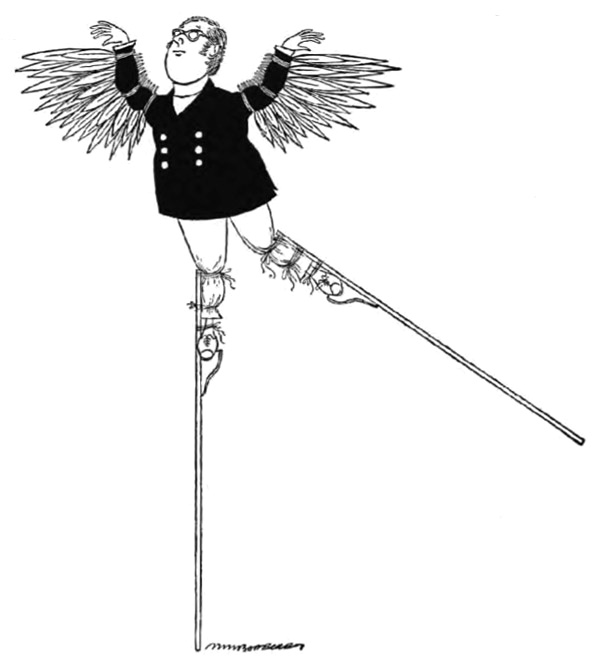From Harper’s, July 2009: Findings
 From “Findings” in the July 2009 Harper’s.
From “Findings” in the July 2009 Harper’s.
Biophysicists at the Monell Chemical Senses Center discovered that red pandas can taste aspartame, neotame, and sucralose and will consume large amounts of these substances if given the chance; lions, meanwhile, proved indifferent to artificial sweeteners. Researchers who injected goldfish with morphine or saline and then attached small heaters to the fish noted that the placebo-group goldfish experienced cognitive pain—fear, anxiety, and wariness—in addition to reflexive pain, which was also observed in the drugged fish. Entomologists tricked Argentine ants into disposing of live pupae by dousing the living antlings with the smell of the dead. Male Trinidadian guppies’ sexual harassment of female guppies was found to cause the females to shun other females they know and to seek out new friends. Swedish scientists identified the human body’s pleasure nerves, which activate when a person is stroked at a speed of 4 to 5 centimeters per second. Other Swedish scientists found that Swedes were becoming increasingly logical. A growing number of sentiment-analysis programs were tracking the emotional content of blogs, and researchers who watched more than 5,000 videos of dancing animals on YouTube determined that fourteen parrot species are capable of keeping time to recorded music. Due to bandwidth scarcity, experts feared imminent Internet brownouts.

From the Web
A former Blackwater employee and an ex-US Marine who has worked as a security operative for the company have made a series of explosive allegations in sworn statements filed on August 3 in federal court in Virginia. The two men claim that the company’s owner, Erik Prince, may have murdered or facilitated the murder of individuals who were cooperating with federal authorities investigating the company. The former employee also alleges that Prince “views himself as a Christian crusader tasked with eliminating Muslims and the Islamic faith from the globe,” and that Prince’s companies “encouraged and rewarded the destruction of Iraqi life.” —“Blackwater Founder Implicated in Murder,” Jeremy Scahill, The Nation
Like many recruits, he had trouble understanding orders and responding quickly enough for the drill instructors. Several times he “informed his staff that he did not want to be a Marine. Each time, he was told that was not an option,” his attorneys wrote in the court motion. On Feb. 5, Fry was counseled for missing training because he was assigned to light duty. The next day, things got worse. He was caught stealing packets of peanut butter from the chow hall. He “intentionally urinated in his own canteen,” according to court documents. He was disrespectful to his senior DI. The next day, an unshaven Fry refused his evening meal, drawing the ire of the “heavy” DI, a staff sergeant who told him to leave the chow hall. After initially refusing, Fry did leave and kept going, leaving the designated recruit area before the DIs confronted him. —“Autistic Marine booted from the Corps,” Gidget Fuentes, Marine Corps Times (via)
Some of Mr. Hall’s most provocative ideas, developed when he was at the Illinois Institute of Technology in the 1960s, dealt with cultural attitudes toward space and time as part of the informal realm of communication…. Space as a form of communication, a field he dubbed proxemics, embraced phenomena like territoriality among office workers and the cultural meanings of architecture. The use of time as a form of communication can be seen, he argued, in the executive or the movie star who keeps a client waiting for a precisely calibrated number of minutes. His ideas were synthesized in Beyond Culture (1976). —“Edward Hall, Expert on Nonverbal Communication, Is Dead at 95,” William Grimes, The New York Times
The disputed history of Times New Roman (via);
full free albums of improvised jazz, etc.;
exposing a network of malicious pranksters


